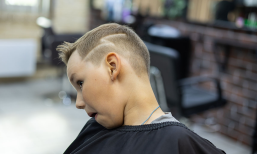Amazon, too, wasn’t far away from topping that $30 billion figure last year: Boruchow said the gross merchandise value (GMV) of apparel and footwear neared $25 billion at the time. That figure marked notable growth from only 5 years prior when those categories represented “five times to six times the amount of softlines sold on the site,” according to Boruchow. At the same time, Amazon is buoyed by strong web traffic, as unique visitors on the site reached 190 million. In addition, Amazon’s popular Prime program is growing and has recently hit 100 million subscribers. Citigroup projections indicate that figure could reach 275 million in the next ten years.
Along with the growth of Prime and web traffic, well-known brands have joined Amazon’s platform, such as Chico’s FAS. The company’s brands include Chico’s, White House Black Market and Soma. In an announcement at the time, Chico’s FAS CEO Shelley Broader said, “Chico’s FAS will be one of the few vertically integrated specialty retailers with Prime eligibility on Amazon.com, which is a testament to the strength of our iconic brands and their growth potential.” With the arrangement, Amazon shoppers will have access to some of the company’s clothing and accessories such as jewelry and no-iron shirts. But the brand said it will still make marketing, pricing and promotions decisions.
We’d love to be your preferred source for news.
Please add us to your preferred sources list so our news, data and interviews show up in your feed. Thanks!
In addition to Chico’s, Nike started working with the eCommerce retailer on a pilot last summer. (That partnership is “progressing well,” Nike CEO Mark Parker said on a recent conference call.) Beyond the big names, Amazon’s own private labels are the fourth most purchased brand in terms of clothing and footwear on Amazon, “with only Nike, Under Armour and Hanes ranking higher,” according to SunTrust analyst Youssef Squali. Overall, the firm projected that private label sales could bring in $7.5 billion in sales this year.
Private Label And Celebrity Brands
Walmart is still going strong with its apparel business as it seeks to evolve with new clothing styles. To that end, the retailer has launched new fashions for women, men and children to be sold through its brick-and-mortar stores and online. Time and Tru and Terra & Sky, Wonder Nation and George were among the new fashion brands, which the retailer seeks to position as value-focused choices for consumers.
Advertisement: Scroll to Continue
In an announcement in March, Deanah Baker, senior vice president of apparel for Walmart U.S, said that the selection meets at “the intersection of … on-trend styles, comfort and quality, all at unbeatable prices. These new brands are a thoughtful reflection of current trends and styles, while considering our customers’ busy, on-the-go lifestyles.”
When it comes to big names, Walmart has brought in celebrity brands into its apparel lineup. To that end, the retailer partnered with Ellen DeGeneres for a new women’s fashion line on its website and in stores. The new fashion brand, EV1, will consist of approximately 60 different products such as T-shirts that display quotes from Ellen, denim, accessories and footwear. In addition, the line will include items that are added seasonally.
In June of 2017, Walmart said it would purchase Bonobos for $310 million. The brand, which was founded in 2007, has since expanded to 35 brick-and-mortar shops nationwide. Commenting on the importance of offline retail in addition to eCommerce channels, Bonobos CEO and co-founder Andy Dunn told CNBC, “stores aren’t going away, but you really have to evolve the stores toward the next generation of hybrid online-offline.”

 Add as Preferred Source
Add as Preferred Source



